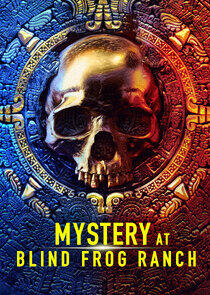This England

Simon Schama argues that it is impossible to understand how Shakespeare came to belong 'to all time' without understanding just how much he was of his time. Schama explores how, in his history plays, Shakespeare created a vision of England that still rings true today. Against the backdrop of the Reformation, Shakespeare began to dramatize English history and the English character in a new and unprecedented way. From his first blockbuster, Henry VI, he made sure that his England was not just a place where King and Queens strutted and preened, but where ordinary Englishmen and women took centre stage. It was inclusive vision that Shakespeare expanded upon in his masterpiece - Henry IV - a play which presents England in glorious technicolour: kings and pickpockets, country squires and common prostitutes, corrupt knights and ragged soldiers. And at the centre of it all is the outsized figure of Sir John Falstaff - a character that transfixed Elizabethan audiences and still moves us today. Falstaff is Shakespeare's most stupendous creation; an outsized dream of Englishness who embodies more purely the essence of English irreverence, generosity and wit.
Trailer
Recently Updated Shows

Cops
COPS follows police officers, constables, and sheriff's deputies during patrols and various police activities by embedding camera crews with their units. The show's formula adheres to a classic cinéma vérité ethos. With no narration or scripted dialog, it depends entirely on the commentary of the officers and on the actions of the people with whom they come into contact.

90 Day Fiancé
90 Day Fiancé offers a unique look into the world of international dating and matrimony. Using a unique 90-day fiance visa, the K-1 visa, four women and two men will travel to the U.S. to live with their overseas partners for the first time. The couples must marry before their visas expire in 90 days, or the visiting partner will have to return home. They'll have to overcome language barriers, culture shock and skeptical friends and family -- all with a clock that starts ticking the moment they step foot on U.S. soil. The stakes are incredibly high as these couples are forced to make a life-altering decision: get married or send their international mate home.

Shifting Gears
Shifting Gears centers on Matt, a stubborn, widowed owner of a classic car restoration shop. When Matt's estranged daughter and her teenage kids move into his house, the real restoration begins.

Mystery at Blind Frog Ranch
There are some places on earth where the land just seems different, and Blind Frog Ranch in eastern Utah is one of those places. Locals say the land is cursed. That it's trying to hold on to something. From Aztec treasure to caverns of gold and silver to lost Mormon mines, legends surround Duane Ollinger's 160-acre ranch in Utah's Uintah Basin. But Duane isn't concerned with the lore. After discovering a system of seven underground caves that run through his property, he is singularly focused on finding what's hidden in them - no matter what the cost.

Survivor
Eighteen to twenty castaways will compete against each other on Survivor. All castaways will compete to outwit, outplay, outlast and ultimately be crowned Sole Survivor.